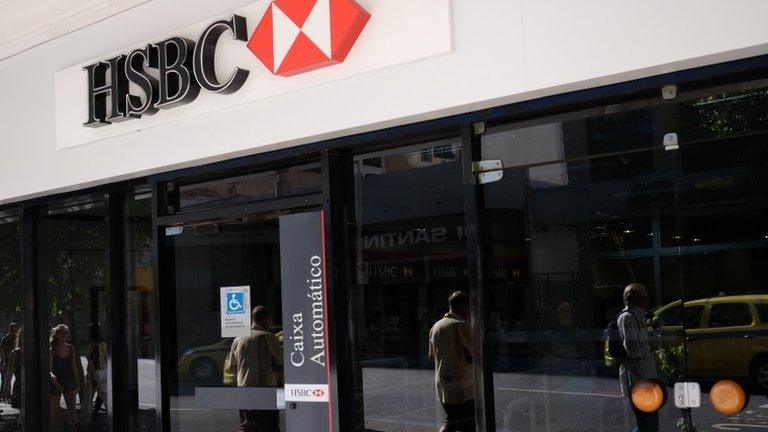HSBC to keep headquarters in London
- Published
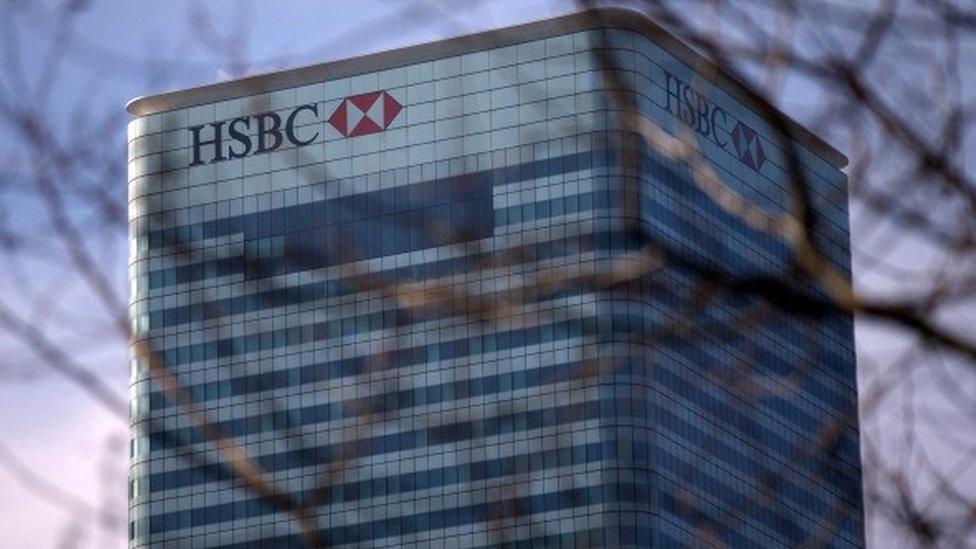
UK banking giant HSBC has announced it is to keep its headquarters in London.
Concerns about stricter UK regulations led Europe's biggest bank to launch a review into whether to move elsewhere, with Hong Kong seen as the most likely alternative.
But the bank said, external it had decided unanimously against the move and that London "offered the best outcome for our customers and shareholders".
The decision was seen as a vote of confidence for the UK.
The bank has had its headquarters in the UK since 1993 but makes most of its money overseas, and Asia accounts for the majority of its profit.
Douglas Flint, the chairman of HSBC, told the Today programme: "London offered the best of both worlds for us. HSBC at its heart is a bank focused on trade and investment flows.
HSBC chairman Douglas Flint on the bank's decision to keep headquarters in UK.
"The UK is one of the most globally connected economies in the world with a fantastic regulatory system and legal system and immense experience in dealing with international affairs," Mr Flint said.
"The government's made very clear its commitment to ensuring that that UK remains a leading international financial centre ... We've ended up with the best of both worlds - a pivot to Asia led from London."
HSBC is understood to have paid about £30m to advisors to help it reach the decision to remain based in London.
'Regrettable' decision
HSBC shares rose 1.36% in Monday's trading in London to 446.4p, but have fallen 17% this year. The bank's Kong Hong-listed shares closed 4% higher on Monday.
However, analysts at Investec said HSBC's decision was "regrettable" because it faced tighter regulations and the cost of the UK bank levy.
"We see HSBC's announcement as a missed opportunity," said Investec analyst Ian Gordon.
HSBC had been paying £1bn a year through the UK banking levy before the government changed the tax last year.
Bank levy
Mr Flint said "it was important that there was a change in the scope of the levy".
"A levy based on an international balance sheet was a disincentive for a global group, and we made that point ever since the start of the levy. It was good to see that the scope of the levy changed to being a domestic impost, and that was important," the HSBC chairman said.
However, Mr Flint denied that HSBC had forced the government's hand in changing the banking levy.
"We had no negotiation with the government. The government was well aware of our view, and indeed the view of many other people who commented upon it, but there certainly was no pressure put, or negotiation."
He added that the regulatory regime had "not been softened".
HSBC's decision was based on "a generational view" and not on "short-term dynamics", Mr Flint said.
"It [the decision to stay] was based on a very thoughtful perspective on how economics will play out over the next 20 [to] 25 years," he said.
'Ideally positioned'
HSBC said that London had an "internationally respected regulatory framework and legal system" and added that it also was "home to a large pool of highly skilled, international talent".
It was therefore "ideally positioned to be the home base for a global financial institution such as HSBC".
Part of the review was considering whether the increased regulation of the banking industry in the UK - in particular the increased tax burden - warranted moving elsewhere.
But in the last Budget, the Chancellor George Osborne introduced a gradual reduction in the bank levy on balance sheets - a move which particularly affected HSBC, because of its large balance sheet.
In 2014 it paid £750m of the £1.9bn raised by the government through that particular tax.

Analysis: Kamal Ahmed, economics editor
For HSBC itself, the decision wasn't just about the tax environment in the UK.
There was also the problem of the regulatory environment in China - with the central bank causing nervousness among investors and volatility in the markets after intervening in the stock and currency markets.
Poorer news about the Chinese economy also focused minds at HSBC's Canary Wharf headquarters in London's docklands.
One interesting point to make about the decision is that whatever fears HSBC has about Britain possibly leaving the European Union, London's attraction as a financial capital was more significant.
Which raises a challenge for those who argue that businesses could quit the UK if Britain were to leave the EU.

The board added that it had also decided to end the practice of reviewing the location of the group's headquarters every three years, and would only revisit the matter if there was "a material change in circumstances".
'Vote of confidence'
It stressed that Asia remained "at the heart of the group's strategy" and that it was putting "particular emphasis on investing further in the Pearl River Delta and ASEAN region".
Hong Kong's Monetary Authority (HKMA) said it respected HSBC's decision.
"The HKMA appreciates that for a large international bank such as HSBC, relocation of domicile is a very major and complicated undertaking," said Norman Chan, its chief executive.
The Treasury welcomed the move.
"It's a vote of confidence in the government's economic plan, and a boost to our goal of making the UK a great place to do more business with China and the rest of Asia," a spokesperson said.
The CBI business lobby group also said the announcement was "good news" because strong banks were "critical for the British economy".
That sentiment was echoed by the BBA, the banking industry body and TheCityUK.
Share price fall
In line with other banks, HSBC shares have fallen sharply this year.
The stock is down 18% since the start of the year and more than 30% from last April, when the review into where to base its HQ was first announced.
The bank will report full-year results on Monday, 22 February. It is in the process of implementing a $5bn (£3.4bn) savings drive and cutting 8,000 jobs in the UK.
- Published14 February 2016
- Published15 February 2016
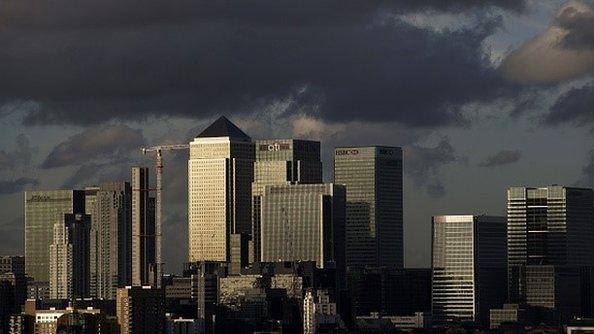
- Published31 January 2016
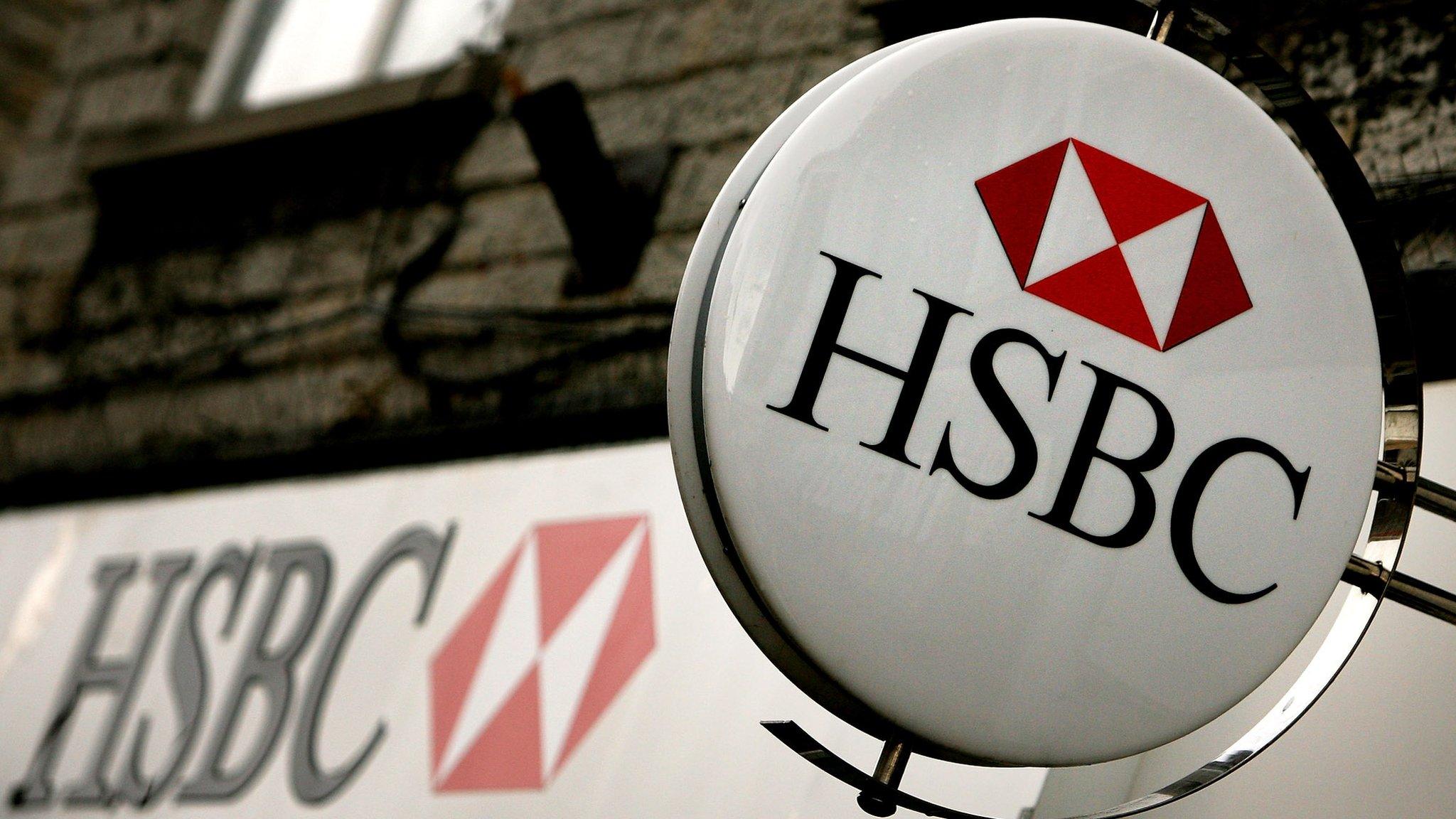
- Published2 November 2015
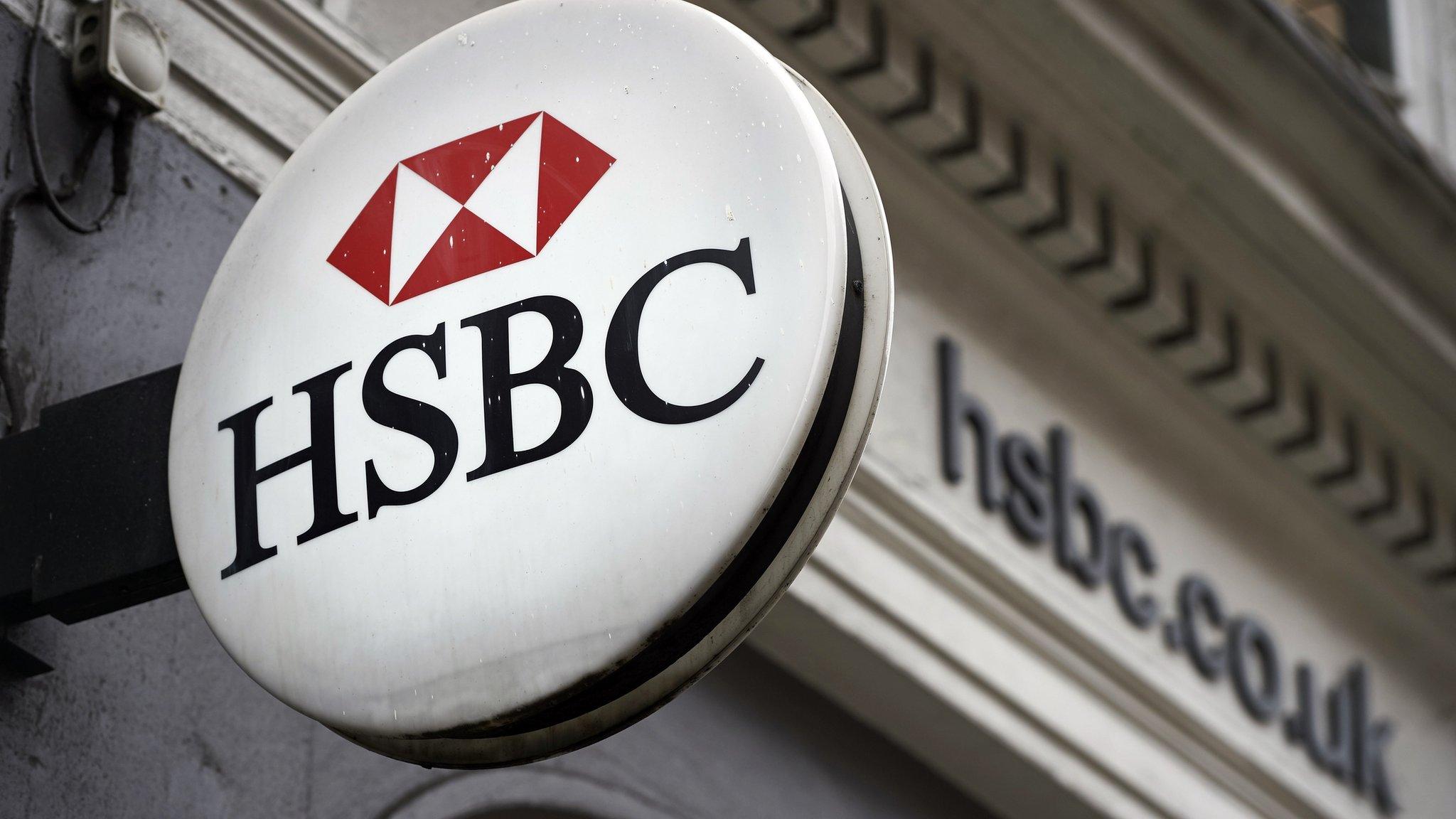
- Published9 June 2015
